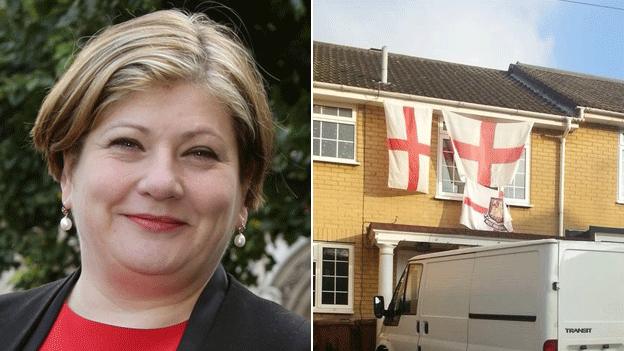Emily Thornberry: Labour's comeback queen
- Published
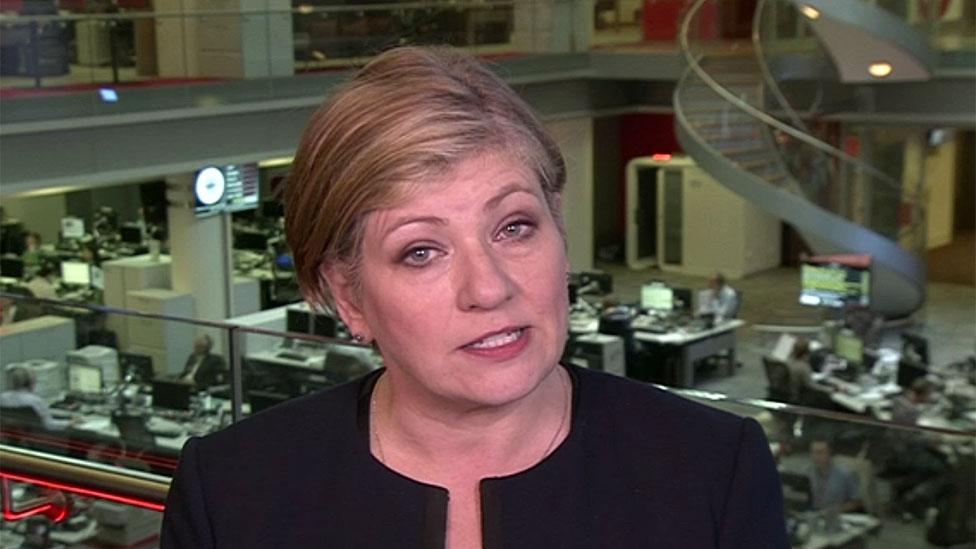
Emily Thornberry, who has been appointed shadow defence secretary by Labour leader Jeremy Corbyn, has been given that rarest of things in British politics - a second chance.
The Islington South MP is best known to the public for being forced to resign as Labour's shadow attorney general in November 2014 for tweeting a picture of a white van parked outside a house bedecked with England flags.
Ms Thornberry posted the picture, entitled "image from Rochester", while she was out campaigning at a by-election UKIP expected to win.
It fed perfectly into the image of Ed Miliband's Labour Party as out-of-touch Metropolitan liberals secretly sneering at the party's traditional core voters.
The tabloids - and UKIP - had a field day.
Mr Miliband said her tweet conveyed "a sense of disrespect".
"I've not got a clue who she is - but she's a snob," the resident of the house in the picture, Dan Ware, told The Sun.
Mr Ware's England flags continued to fly but the shutters came firmly down on Ms Thornberry's career in frontline politics. Or so everyone assumed.
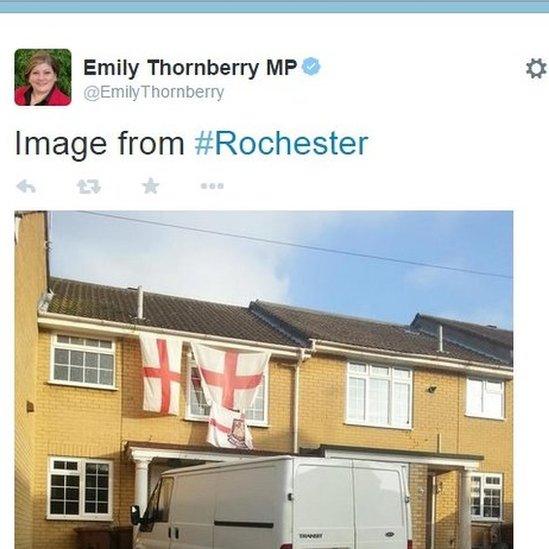
The tweet was posted on polling day in Rochester
But the 55-year-old former lawyer would get an unexpected shot at redemption less than a year later when Jeremy Corbyn was elected Labour leader.
She was one of 35 MPs who nominated Mr Corbyn for the leadership, ensuring he got on to the ballot paper, but she had not wanted him to win it, backing Yvette Cooper's campaign instead.
She rejected claims, by one Blairite commentator, that the MPs who had nominated Mr Corbyn to "broaden the debate" and ensure the left had a voice in the contest were "morons".
"There is nothing moronic about democracy," she told BBC Radio 4's PM programme.
"I nominated Jeremy because I think he represents an important body of thought within the Labour Party. I don't think it necessarily represents the whole of the Labour Party, but I think that many of the things that he has to say are important, they're important challenges and they need to be answered."
Mr Corbyn made her a junior work and pensions spokeswoman - but in an interview with the BBC News Channel two days later it was defence that was on her mind.
"I don't think being against nuclear weapons is actually that zany, you know," she said.
"They are the ultimate weapons of mass destruction. We will be killing women and children if we use them, and if we wouldn't use them then why spend £100bn on them? Just imagine what we could spend that money on instead."
She added: "How about spending some more money on the army? We have a smaller army than in Oliver Cromwell's days and yet we expect them to to do jobs all over the world."
Emily Thornberry: "I don't think being against nuclear weapons is that zany"
Perhaps she was thinking of her father, Cedric, who was a senior official in the United Nations' first peacekeeping force in Croatia and in Bosnia and Herzegovina in the early 1990s.
He rose to be the UN's assistant secretary general before his retirement in 1995. After his death, in 2014, at the age of 77, the Guardian noted, external that he had "always looked for ways of using his skills as a lawyer to make the world a better place".
Cedric Thornberry was married and divorced four times - he split with Emily's mother when the future Labour MP was seven.
Emily grew up on a council estate in Guildford and attended the local secondary modern school, after failing her 11-plus exams.
She took courses to get enough A Levels to study law at Kent University, where she met her future husband, Christopher Nugee. When Nugee became a High Court judge she earned the right to call herself Lady Nugee, but chooses not to use the title. The couple have three children.
A member of the Labour Party since the age of 17, she was selected as the Labour candidate for Islington South and Finsbury at the 2005 general election, through an all-women shortlist, following the retirement of Chris Smith.
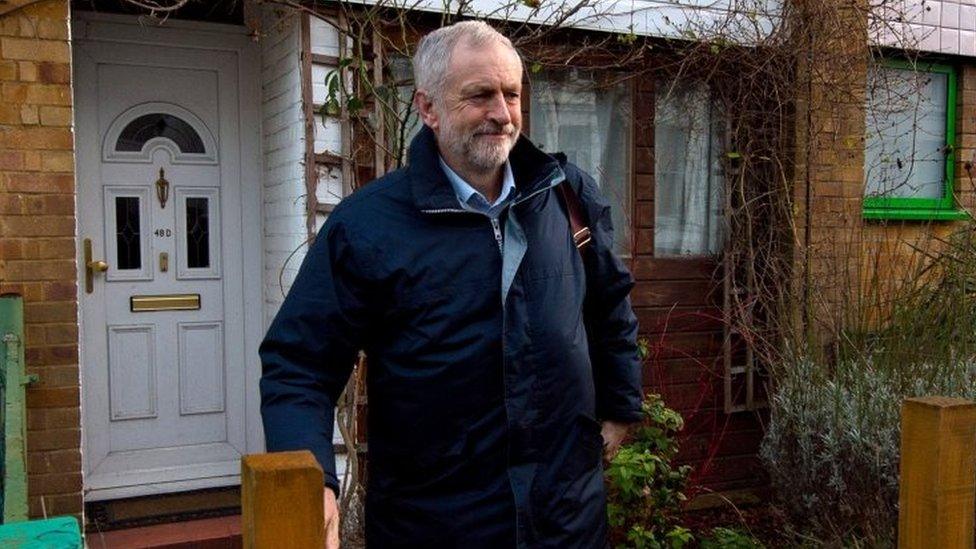
Jeremy Corbyn represents neighbouring seat Islington North
She was elected with a majority of just 484 but saw off a challenge from the Liberal Democrats in the seat and was returned with a healthy majority of 12,708 in May's general election.
She spent her early years in Parliament campaigning on equality, housing and the environment and worked with Ed Miliband as a ministerial aide in the Department of Energy and Climate Change before the 2010 general election. She was briefly a shadow health minister before Mr Miliband made her shadow attorney general in October 2011.
'Stop triangulating'
In an interview with the BBC News website shortly before Christmas, Thornberry was looking forward to spending the next five years taking the fight to the Conservatives on low pay and Universal Credit, insisting that Chancellor George Osborne's "jobs miracle" was a mirage.
The defence brief is a very different, and more high profile, challenge.
But unlike her predecessor in the role, Maria Eagle, she is, at least, in tune with her leader's views on Trident, as Labour goes through the process of forming a policy on renewal of the nuclear weapons system.
And she is an enthusiastic convert to what she sees as Jeremy Corbyn's new style of politics.
"One of the good things about Jeremy becoming leader is that it has kind of opened us up to think in a different way," she told me. Labour MPs could now be "able to stop triangulating and to say what we mean and mean what we say".
She will not have heard the last of that infamous tweet. As rumours began circulating that she had landed the defence job, New Statesman political editor George Eaton quoted, external an unnamed Labour MP saying "it would be extraordinary if we ended up with a shadow defence sec who sneers at her own flag".
But in her interview last month, she made it clear that, as far as she was concerned, the episode was firmly behind her: "I apologised if I caused any real offence to anyone and I resigned and I have moved on. There is not much else I can say, I think."
- Published11 January 2016
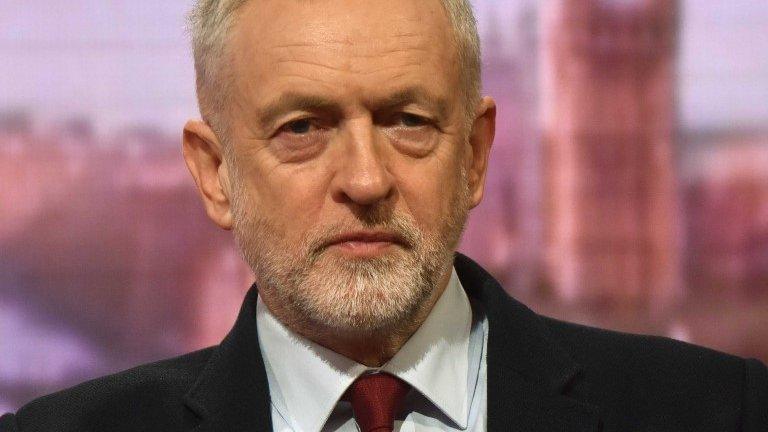
- Published6 January 2016
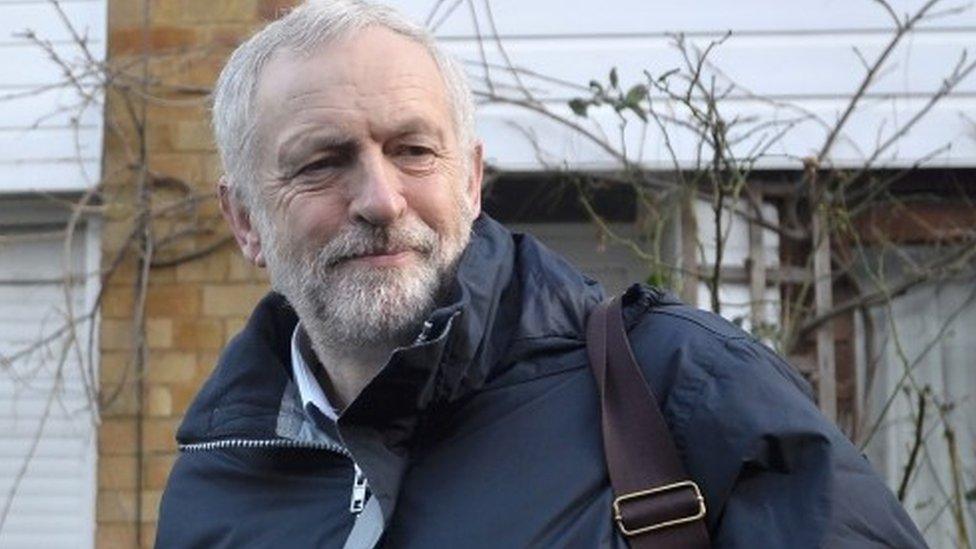
- Published22 December 2015
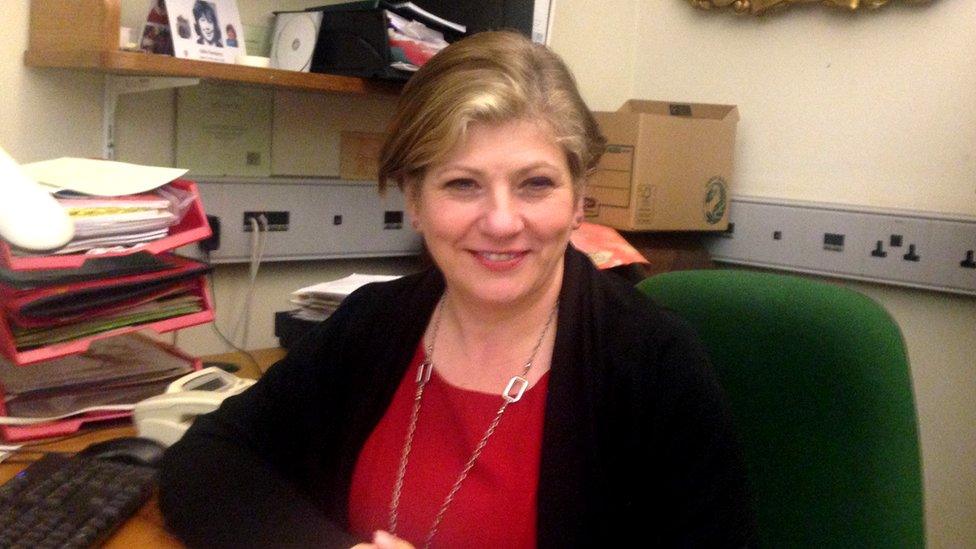
- Published21 November 2014
